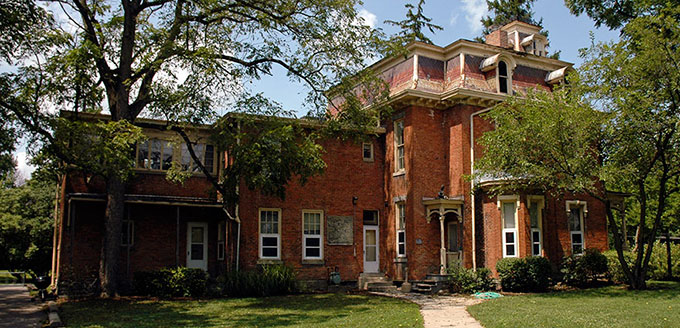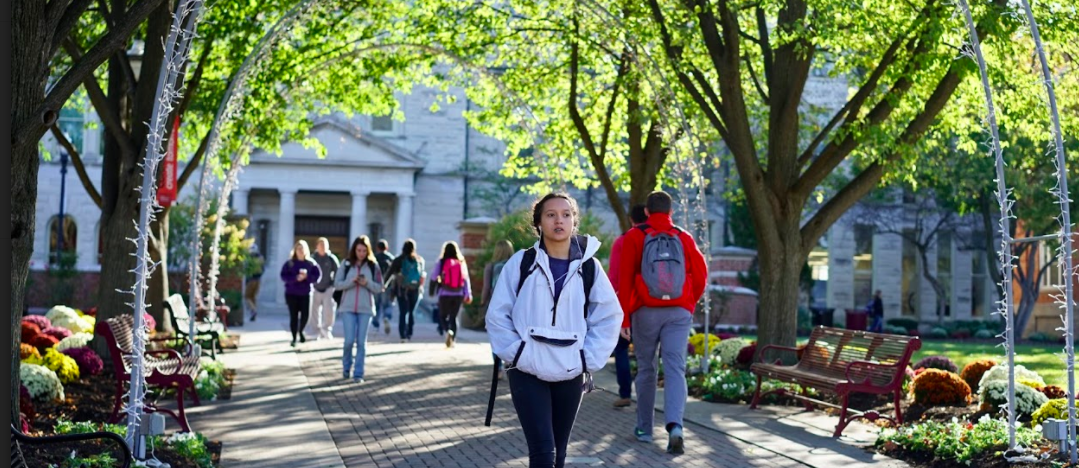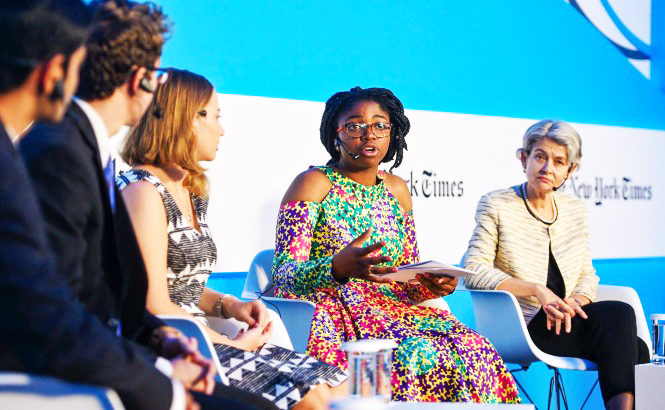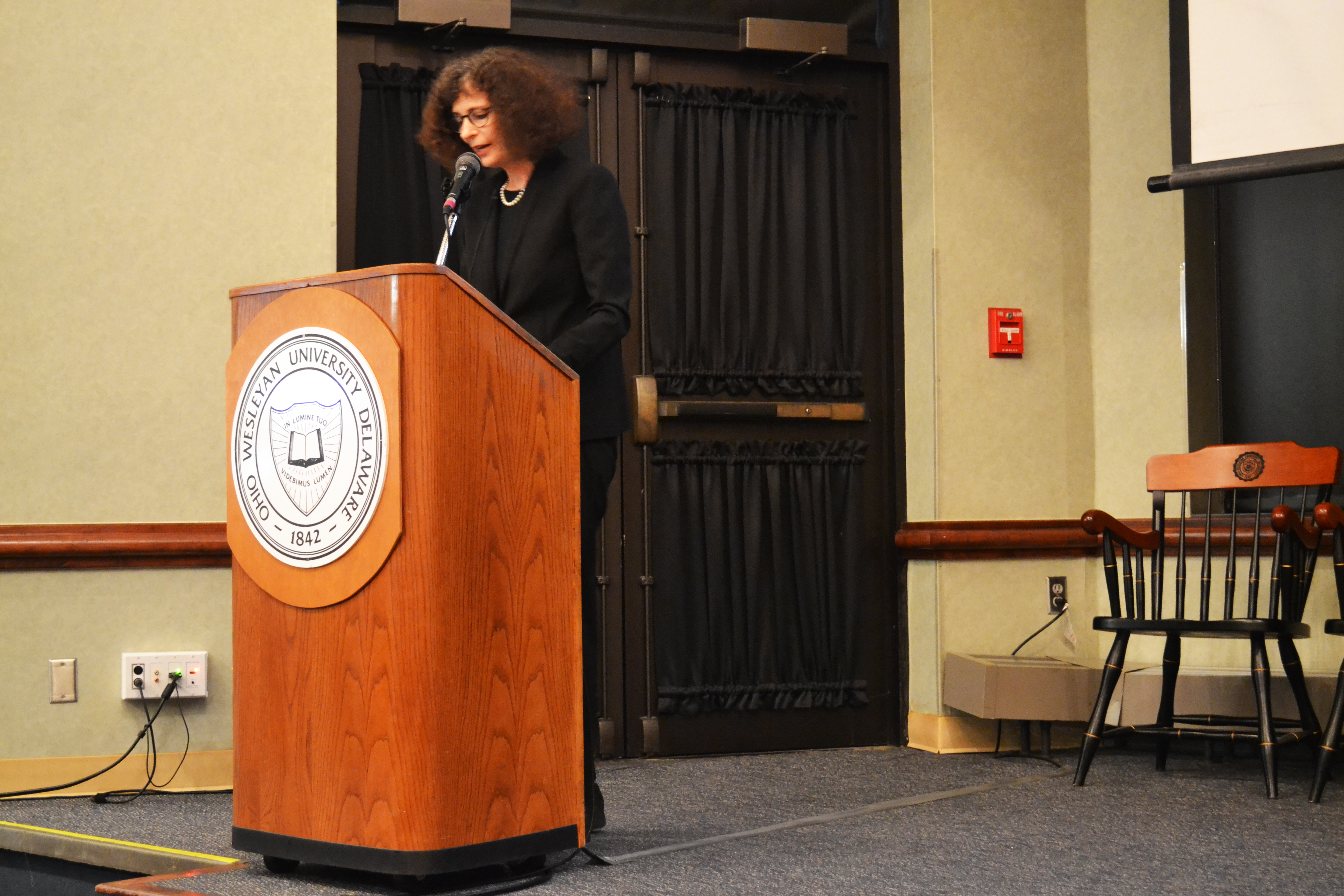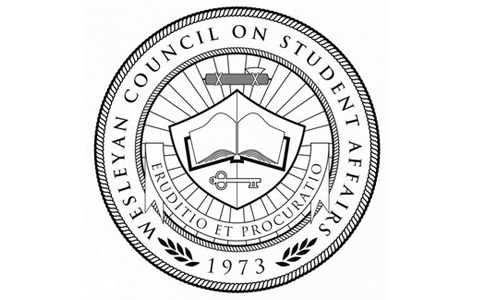By Alameina White, Transcript Reporter
The Perkins House, which formerly housed members of the House of Peace and Justice (P&J), has been sold because of a need for extensive renovations.
According to Lauri Strimkovsky, vice president for finance and administration and treasurer, after 30 years of being a part of Ohio Wesleyan University’s campus, the Perkins House has been sold because it is no longer being used as a residential spot for students.
“Rather than allow the building to sit empty and deteriorate, the decision was made to sell it and reinvest the proceeds into other residential life housing projects,” Strimkovsky said.
Members of the P&J House were moved to one of the new SLUplexes built last year, including three current seniors who previously resided in the Perkins House.
Ellen Sizer, Kieran Tobias and Izzy Taylor said they were glad to hear that someone bought the former P&J House instead of it being torn down.
“I think it’s good that it’s being sold, so that hopefully someone can clean it up and return it to what it was,” Taylor said. The residents have noticed a few changes since the site of the P&J House was moved.
Tobias said the former house didn’t have a television, and with the addition of TVs, the house has felt a bit more modern.
“The old house was like a portal into the 70s,” Tobias said. “When you walked in, all you saw were people drawing in sketchbooks or writing in their journals.”
Sizer added that since they moved to a newer house, they’ve attracted a new and wider range of students she doesn’t think would have notice the P&J House before. ButTaylor said the house still holds positive vibes and great energy.
Though they are happy to see the house being sold instead of torn down, these seniors still hold memories in the house that can’t be replaced.
Last year, the house celebrated its 30-year anniversary and held a lunch with new and old members of the P&J House where everyone discussed their memories in the house and where life has led them. Tobias and Taylor said they enjoyed meeting generations of people as far back as the 90s who had shared the same home.
Sizer, though she doesn’t dwell on the past, said she will miss waking up in the quad in the former house.
“The greatest feeling was waking up from a nap in the quad and all you see is sun around you,” Sizer said.
Each of the seniors, though sad to part with the former house, want to emphasize the point that the Peace and Justice House’s meaning is more important than the physical home.
“As important and historical as the old house may have been, I think it’s the spirit of the house that matters more than anything,” Tobias said.
Sizer said, “Our house did everything we could to live in it the longest we could and I am positive about the future.”
